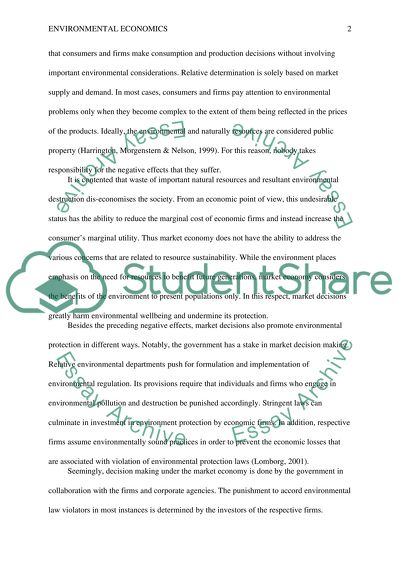Cite this document
(“Environmental Economics Essay Example | Topics and Well Written Essays - 1000 words - 1”, n.d.)
Retrieved from https://studentshare.org/marketing/1465249-environmental-economics
Retrieved from https://studentshare.org/marketing/1465249-environmental-economics
(Environmental Economics Essay Example | Topics and Well Written Essays - 1000 Words - 1)
https://studentshare.org/marketing/1465249-environmental-economics.
https://studentshare.org/marketing/1465249-environmental-economics.
“Environmental Economics Essay Example | Topics and Well Written Essays - 1000 Words - 1”, n.d. https://studentshare.org/marketing/1465249-environmental-economics.


